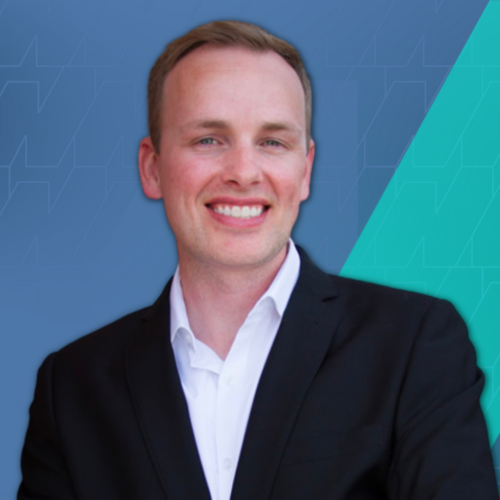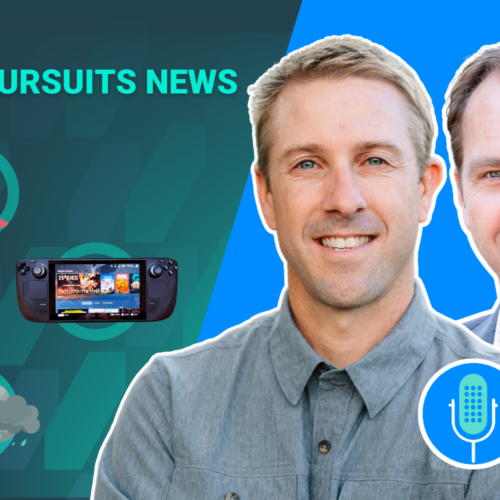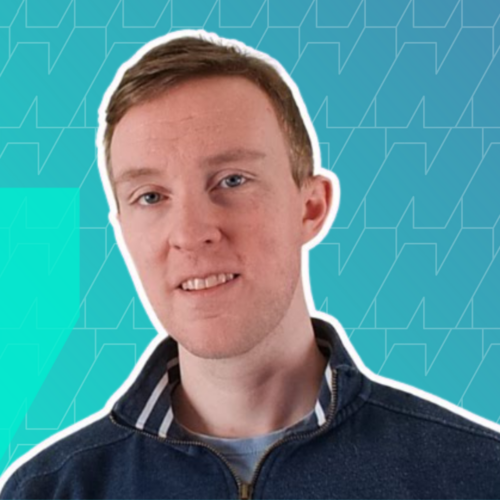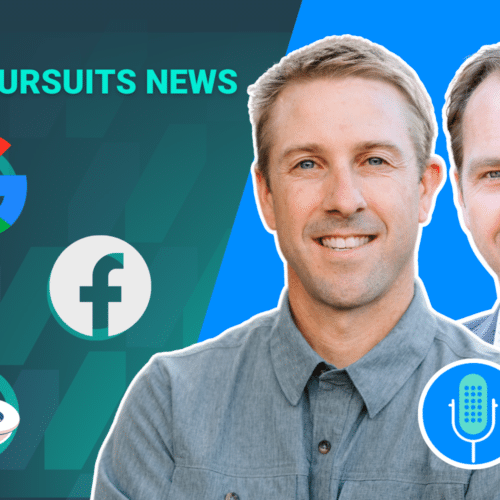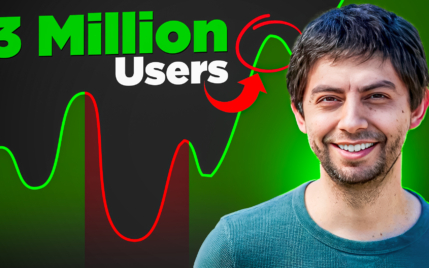Podcast 155: How Tommy Griffith Went From Managing SEO for PayPal and AirBNB to Starting a Mid-Six Figure a Year SEO Training Course
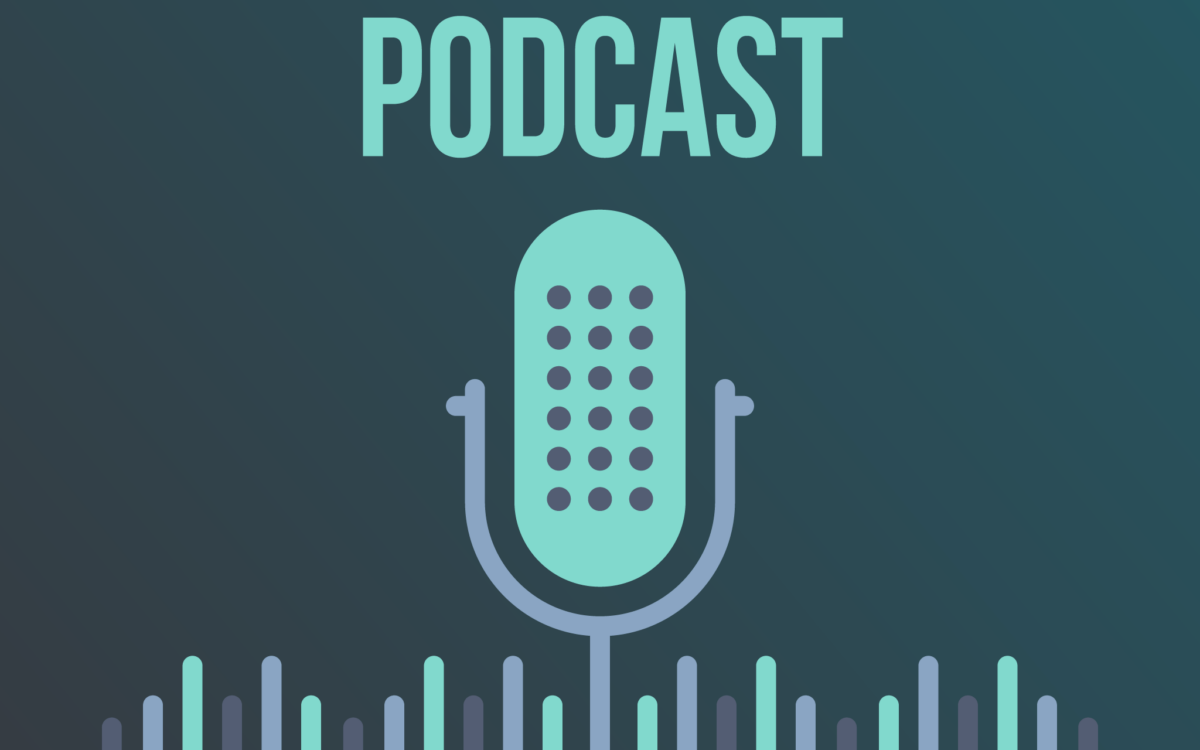
When you buy something through one of the links on our site, we may earn an affiliate commission.
Today, I'm excited to introduce you to Tommy Griffith from Clickminded.com. Tommy is someone that has been involved with SEO for a long time at a couple of really large companies. He started as an SEO manager for PayPal and then moved over to Airbnb as an SEO manager there as well; pretty cool stuff.
What you might find interesting is that SEO at a large company like Airbnb is not all about keyword research and backlinks. Larger sites deal with more design- and site architecture-type issues. Working there was no easy task.
However, as you'll hear, Tommy started teaching an SEO course on the side and that has now become a fulltime business for him. He's had a ton of ups and downs along the way that he talks about, but he's been able to build a great business.
I hope you listen in to Tommy's full story and some of the SEO tips that he has to share. If you want to checkout the full SEO course that Tommy has, you can check it out right here.
Overall, I hope you'll enjoy the interview.
Check out ClickMinded Right HereMentioned on the Podcast:
- ClickMinded
- Blog post summarizing the last two years of going full-time
- SEO Strategy Guide
- Digital Marketing Strategy Guide
- SEO Checklist
- PayPal
- AirBNB
- Long Tail Pro
- The 4 Hour WorkWeek by Tim Ferris
- Udemy.com
- Dan Andrews – Dynamite Circle
For contact details, you can find Tommy on Twitter @TommyGriffith.
Thanks again for listening!
Full Transcript
Spencer: Hey, everyone. Welcome back to another episode of the Niche Pursuits Podcast. I’m your host, . Before we jump into today’s episode, I wanted to tell you a little bit about Ezoic. Ezoic is an ad platform that I have been using on my Niche Site Project 4 site and I've been very happy with it.
Ezoic is a Google award-winning technology that everyone from niche website owners to major brands use to grow and monetize their websites. Ezoic is also a Google-certified publishing partner. The platform leverages Artificial Intelligence to learn from website visitors with the goal of providing more personalized experiences that will improve on page experiences which is session length, while also optimizing revenue and monetization on a per visitor basis.
The Ezoic platform features everything from intelligent website analytics to advanced automated visitor segmentation tools that allow publishers to improve visitor experiences and increase overall website revenue. Overall, there really are some big benefits to using Ezoic. It's more than just an ad platform, but it truly is a platform that allows publishers to implement sophisticated ad operations and monetization practices on their website using advanced artificial intelligence. This allows publishers to manage as much or as little as they want. You simply drag and drop ad placeholders, and Ezoic will help automatically test thousands of ad partners, ad locations, ad types, and control ad density. This means Ezoic optimizes revenue and engagement for each unique visitor, maximizing the revenue publishers earn. If you want to go and check out Ezoic, you can go to nichepursuits.com/ezoic. Again, that's nichepursuits.com/ezoic.
Today, I'm excited to introduce you to Tommy Griffith from clickminded.com. Tommy is someone that has been involved with SEO for a long time in a couple of really large companies. He started as an SEO manager for PayPal and then moved over to Airbnb as an SEO manager there as well; pretty cool stuff.
What you might find interesting is that SEO at a large company like Airbnb is not all about keyword research and backlinks. Larger sites deal with more design- and site architecture-type issues. Working there was no easy task. However, as you'll hear, Tommy started teaching an SEO course on his site and that has now become a fulltime business for him. He's had a ton of ups and downs along the way that he talks about, but he's been able to build a great business.
I hope you listen in to Tommy's full story and some of the SEO tips that he has to share. If you want to checkout the full SEO course that Tommy has, you can go to nichepursuits.com/clickminded. Overall, I hope you'll enjoy the interview.
Hey, Tommy. Welcome to the Niche Pursuits Podcast.
Tommy: Spencer, thanks for having me. I really appreciate it.
Spencer: It's great to have you on. I'm not sure, originally, how you crossed paths with Niche Pursuits, and honestly, I'm not sure, originally, how I crossed paths with ClickMinded, but I've sort of known about you. I don't know, originally, where it was but it great to finally connect and have you on the podcast and discuss your business.
Tommy: For sure. I've listened to a bunch of different random episodes over the years but my first interaction with you is probably Long Tail Pro. I was using that. We actually use it. I probably should have emailed you when we're doing this. When I was managing SEO at PayPal, we were using your tool.
Spencer: Wow. That's awesome. That's very cool. I know it's been a little while since you've been at PayPal but I appreciate that. That's very cool.
Tommy: For sure. I had no idea who you were. I was just using your tool.
Spencer: That's interesting. This wasn't one of my questions, but as somebody doing internal SEO or just doing SEO for a large company like PayPal or Airbnb like we're going to talk about, it sounds like maybe you didn't have special tools that were created by PayPal or Airbnb or just using third-party tools like Long Tail Pro.
Tommy: We were. That probably changed towards the end of my four years at Airbnb. I wouldn’t say we were creating our own internal tools, but we definitely had our own internal processes, internal testing, and an experiment framework. Once, we were investing more in SEO and my team grew. Six years manager in SEO at PayPal and Airbnb, the majority of the time was using regular third-party tools that everyone will use from rank tracking to keyword research to anything you would imagine. Just the standard stuff that you would do creating a landing page for a $10 ebook. We were also using it at massive websites, yeah.
Spencer: Very interesting. How did you get started in SEO?
Tommy: My entry into this whole game, probably like many others, with The 4-Hour Workweek. I'm sure you're very familiar with Tim Ferriss' book. A lot of people get in that way. I wrote a very dorky ebook back in 2008. It’s […] finance, the banks crashed, had no idea what to do. Like a lot of people, I got into that way. “Okay, I wrote my ebook. How do I get it to the top of Google?” That was sort of my first idea.
I ended up trying to start a business with a friend of mine. That was a horrible idea. We borrowed money from family and friends, worked on it for a year. I was really under qualified to be doing this and that ended up not working. I moved around a lot, moved to an agency trying many different things. Eventually, it was just the right place, right time at PayPal. I taught myself SEO at that time and then ended up managing SEO there when I was about 24. I was pretty young and it took off from there.
Spencer: Let's dive into that. How do you end up managing SEO at PayPal? It doesn't sound like—from your previous comment there—that's not necessarily what you're originally came on for but maybe grew into that. Is that right?
Tommy: No. I actually did come on for that, but it's really interesting. I actually never really spoken about this, thought about this much since, but it's really funny how big companies hire, especially with PayPal. I don't want to dog them too much, but it's a pretty slow, lethargic, company everyone is annoyed with. I think it works a lot more like a bank than anything else and it was just one of those things where, the right department at the right time acquired budget, to hire someone to solve a problem, which was a particular part of that business wasn't ranking well in certain countries.
I was actually got hired originally to manage SEO for emerging markets, kind of non-English markets. But then, someone realized, “Wait. No one's managing SEO anywhere for anything,” and I just ended up taking all of it.
Spencer: Is that right? Wow. That is pretty impressive at a young age to be managing SEO for such a large company. We don't have to talk too much about your time there. You then went on to Airbnb to also manage their SEO, correct?
Tommy: Yes, moved over to Airbnb after two years and that was pretty wild. I joined in 2013 and it was just a crazy time to join. The first week I was at Airbnb, we were subpoenaed by the State of New York for data. The last week I was there, I was working on a Super Bowl ad. Beyonce was staying at an Airbnb, that kind of thing. It was pretty wild. The business doubled every year. I was there for four years straight and it was just a crazy time to be there.
Spencer: That's a pretty exciting time to have; be a part of such a high growth company. Not a lot of people will be able to experience that. Doing SEO there, what exactly does it mean to be an SEO manager? Were you overseeing all the SEO of the company? Specific areas? How did that worked?
Tommy: It fluctuated a little bit. I originally joined sort of reporting to someone. Then, it was just me for awhile. By the time I left, I had a team of 10 or 12. Some people part time, part of their work was on it.
The way we managed search engine optimization at Airbnb is very different than what most of the audience here would be thinking here about. Enterprise SEO is a different animal in and of itself. I would actually argue that enterprise SEO in general is extremely boring. I think the funniest example for enterprise SEO is the fact that Google has an SEO team. That tells you a lot. What that means is that enterprise SEO is having meetings and putting together PowerPoints for you to explain to people why they shouldn't noindex things. It's a lot of managing up, executive expectations, and total addressing of market sizing for stuff.
The fact that Google people have to evangelize SEO shows you that it’s just big company navigation stuff. That was not at all it was in the early days with Airbnb. We were much more agile than that, but PayPal is probably a lot more then. The thing that's interesting with Airbnb was it's a little bit different based on the type of business you were whether you're a content, play, or a web application. We were managing traffic that's coming into our web application, not creating content for it.
A really good model for this is Pinterest. We actually worked with the Pinterest team for a couple of times; friends with their SEO manager. Airbnb and Pinterest were actually pretty close. We were on the same block in San Francisco. The recruiters were poaching the employees from both companies all the time. People were dating each other in this companies. There's a lot of crossover. We were friends with them. They helped us build an experiment framework to manage a lot of our experiments. They've actually published exactly how to do it on their engineering blog. We did once and learned to published one on our data science blog, a year or two later.
The total conceivable number of pages we were optimizing for at PayPal was 50–100. The total conceivable number of pages at Airbnb was probably more than 5 million or 10 million because of every possible variation. The vacation rentals in Miami was an easy one, but then you get all these variations—family-friendly villa in San Diego, pet-friendly condo in Detroit. Then, you have even crazier ones like family-friendly boutique hotel in Paris written in Hungarian from someone searching from Czech Republic.
The total number of permutations there was really high. We have 55 top level domains, 20 different languages supported, so there's a lot there. It was more about managing the engineering behind the web applications and running experiments rather than like, “Let's create a blog post for the seven best family-friendly ideas for San Diego.” It's very different.
Spencer: That is very different, just a whole different animal. Were there any particular SEO strategies that you use at Airbnb that worked really well?
Tommy: It used to be Frank Spencer. The majority of my time at Airbnb was me just getting my ass kicked. It was a really humbling and interesting experience because we grew SEO traffic a lot. The team grew a lot. We had a big impact on the company, but Airbnb was in a fascinating position because the company is surrounded by designers.
I think that it's easy to argue that a lot of Airbnb's success because they were so particular about their design. The majority of my time was actually trying to make a lot of our pages more search engine friendly without ruining the design. That's just big on Airbnb, really high quality photography with really heavy page load pages, trying to remove as much text possible. That was the dream for designers. It mostly kept me up at night screaming into my pillow.
It was a lot of managing expectations and this has happened all the time. We would look at a page and say, “This is the change we want to make. Here's the impact we think it'll have. Here's the X number of nights we think it will drive. Here's the impact on the business.” A higher-level executive or someone like the co-founder would look into it and, “No, we can't do that.” They would say it's not worth the trade-off.
When I was young, of course to every SEO, what's that saying? “Every problem looks like a nail and you're a hammer?” Something like that. I always thought the solution was SEO. Looking back, I think people much wiser than me would often shut me down correctly. They would say, “That hurts the user experience. We're not going to implement that change.” In some of the cases, I think they were right. It was an interesting time, for sure.
Spencer: Yes. It's very much a corporate environment. It's not running your own portfolio site. You can't just say, “I'm going to make this change and do it.” Like you said, there's committees, there's people that are higher-up. Your managers that are going to push back and tell you, “No.” So, a whole different ball game there. A lot of probably very technical SEO type issues that come off with, “Yeah, maybe if I just got a WordPress blog with content on it, I don't even have to worry about it or think about it.”
Tommy: Exactly. A lot of internationalization, a lot of translation issues. It wasn't nearly as slow-moving as I'm portraying it. To contrast it, at PayPal we push out a code change once every two weeks. It was two weeks to push out a change. At Airbnb, the team's pushing usually 15 to 20 times per day. It was still a very nimble company for sure.
Spencer: Very cool. I now want to talk a little bit about ClickMinded. Where did the idea come from? Why in the world did you start it when you already got a great job?
Tommy: ClickMinded is a digital marketing training platform for entrepreneurs and marketers. It started as a side project at PayPal. I started teaching SEO on the weekends. I was actually trying to get out of debt from my first business idea. I borrowed a bunch of money from family and friends and was trying to hustle up enough cash to pay down my debt.
I started teaching search engine optimization to startups on weekends at San Francisco. I rented a coworking space and physically, in person, one-on-one, teaching a class. It was sort of the right place, right time, with this online learning renaissance that we're in right now. Are you familiar with Udemy?
Spencer: I am.
Tommy: I started on Udemy. It was just kind of right place, right time with them. I created my first SEO course and continued to work on while doing this enterprise SEO thing. We started using the online course to train up people at PayPal. When I switch over to Airbnb, kept improving the course, and was using to train up people at Airbnb. After, maybe three years, it ended up starting to bring in more revenue than my salary.
Spencer: Which is always a good thing, I guess, right?
Tommy: Yeah. It was a lot of fun. I kept working on it and then about two years ago, I left Airbnb to go full time on it. In the last two years, I've been traveling, working on the business, had a ton of high highs, a ton of low lows, nearly drove into the ground last year, sort of recovered, and doing really well now. So, it's been exciting.
Spencer: […] along the way which I think I'll like to dive into a little bit here, but before we do, can you give people a sense of the type of success that you're having with your business now? Whatever you're comfortable sharing whether that's revenue numbers, number of users, or traffic. Just to get people an idea of how far you've come since you started.
Tommy: I have a blog post where I wrote the last two years and have it in front of me here. The crazy part about this is that this has been a side project. It’s eight years old and part of what I wrote on my blog post is, “I feel like I’ve been successful, but then I look at the following companies were started after ClickMinded. Lyft, $24 billion. Snapchat, $15 billion. Instacart, $7 billion. SoFi, $4 billion.” It's all relative.
I started ClickMinded in 2012. It was only in-person training, $11,000 that year. I'm probably working way, way, more than I should've. $49,000 in 2013, $117,000 in 2014. That was the year where I started making more than my salary. $137,000 in 2015, $160,000 in 2016, $312,000 in 2017, and then last year, $378,000. This year, where on track to do about $490,000.
Spencer: Awesome. Congrats. It's a nice little business.
Tommy: Yeah. Like I've said before, I'm pretty happy with it now, but you could also argue that for eight years, that's very unsuccessful. It depends on what your perspective is.
Spencer: Absolutely. I think most people listening would be happy to have a business the size that you have now, but would they be willing to try, fail, and grow slowly for eight years? That's the work that sometimes is required for these things. I think a lot of people just wouldn't be willing to put in obviously that amount of time, an effort to make something to grow that size.
You mentioned in your comment that last year, a year ago, or something, you almost drove the business to the ground. What are some of the challenges that you’ve had recently when you made that comment. What's something that's gone wrong with the business that made you consider either shutting it down or struggle with?
Tommy: The one thing I did right was when I took my time to leave. I don't want to conflate that with waiting to launch. A friend of mine, Dan Andrews, he runs an entrepreneur group. I don't know if you know Dan.
Spencer: I do know Dan.
Tommy: You do know Dan? Cool. He coined this term recently called exit velocity. I really like this idea. The way he describes it, I actually have it right here, he said, “Exit velocity is the amount of professional and entrepreneurial momentum you have when quitting your job and starting a new venture. A momentum can come from a variety of sources: investment capital, experience, anchor clients, industry knowledge, and connections (AKA unfair advantage).”
I had a lot of exit velocity when I left. I was working at big companies, managing SEOs, I was dog putting the product at those companies, I was building the product up to be higher than my salary. By the time I left, I had a running start. The way I like to think about this is like a canon. Your side project is like a canon and your slowly pointing it up in the air. If you have no exit velocity, you're just pointing it horizontally straight. The more exit velocity you have, you're kind of shooting it out on a canon.
I had a lot of exit velocity with the SEO course, but then we went on to go create a bunch of new courses and I had less exit velocity with them. I started to have a serious struggle. I was really into this Tim Ferriss, 4-Hour Workweek, nomad thing and I was really getting really excited planning my exit in San Francisco. I had this big dream to go to Bali, moved to Bali, work on my business, and meet all these cool people.
When I eventually got there, I realized, I had really set my expectations way too high. I've been planning my escape for too long. I was really getting sick on San Francisco. I was envisioning this life that was just completely unattainable, like coconuts on the beach, the business is going to grow so much, and meet so many cool people.
The first week I was in Bali, I got robbed in my first day. I got food poisoning. I was throwing up everywhere. I'd refilmed the course for the friend of mine, invested all the time, spent more than $10,000 on everything, and realized all the filming we had done was nearly ruined because it was raining and the audio was bad.
I'm sitting there in Bali, looking up in the sky, just been robbed, just throwing up, I had this overpriced harddrive full of footage on it, and I'm just thinking back, Airbnb was an all inclusive resort. Breakfast, lunch, dinner, the stock option, bean bag chairs, the Macbooks. I'm sitting there throwing up on an island in the South Pacific like, “What am I doing?”
Spencer: Wow.
Tommy: It was very tough times getting started, for sure.
Spencer: Yeah. What you're saying is you worked more than four hours a week, as well. Wow. That would be tough when you're down. How do you pick yourself up from something like that?
Tommy: This is pretty controversial. A lot of friends of mine said this was a really dumb move, but I wrote about it in this post; I was pretty open about it. I brought on a co-founder, a guy I worked with for a while. I brought in a co-founder very late into the business, about the fourth year into the business. It was mostly because of my own incompetence, my own inadequacy.
Eduardo, my now co-founder, we worked together. He was an apprentice for a while. He was more like a CTO-ish type role, helping fix a lot of the automation we had, had actually a much stronger vision for where we could take it. which I think is controversial. I know a lot of entrepreneurs are supposed to be the ones driving the bus, but the reality is, for our customer avatars, Eduardo was a much closer fit for who we thought we should target. I ended up bringing him onboard. That's when everything changed.
I don't really think I could've gotten the business passed that $150,000 a year plateau without springing on someone else and that second set of eyes. I don't mean second set of eyes like hire someone smart and have them look at everything for four hours, like the McKinsey or the Harvard graduate guy. I mean, someone in the trenches with you. They give up their job and they work on the same problem for a year, that kind of second set of eyes. You know what I mean?
Spencer: Absolutely. I could see how that would be very helpful. It is also very risky like your friend said, giving up a portion of your business to a partner, that's not easy to do. But at the end of the day, if that helps grow the business, both of you have a larger pie after you working together, then it's worth it, right?
Tommy: It's worth it, exactly.
Spencer: Talk about specifically what is in your product, in your training there at ClickMinded. What type of users are you targeting? Is it only enterprise SEO people or agencies? What type of materials in your content in your training course there?
Tommy: We have seven different courses: SEO, paid advertising, content marketing, email marketing, social media marketing, Google Analytics, and sales funnels. Our model is we try to find world class people that do this everyday to teach it. The former head of social media from Airbnb teaches the social media course. The former content strategist from Lyft teaches the content course. We're a beginner to intermediate level focusing on entrepreneurs, some marketers, consultants, and agencies.
We try to do technical training that's fun. We try to make it lighthearted and nerdy as our angle. We're really proud of the product. One of the things we do is this thing called the SOP library. We focus on really specific, actionable, digital marketing SOPs. Checklist and cheat sheets to actually implement a lot of these stuff on your own.
Spencer: Very good. A lot of actionable steps that people can follow along to learn SEO. Talking specifically now about the business and how you’ve grown it, I know you mentioned that originally, you were teaching in person, I think you said in San Francisco Bay Area, and then you moved online to Udemy and had a course there. Now, you shifted, of course, to your own website. You're off anybody else's platform. Maybe you can just talk about the strategies you've implemented to grow it from in-person to now all online and what's working well now to continue to grow your business.
Tommy: Sure. Obviously, we implement everything that we teach in the course. We're all in an online platform called Teachable. I'm sure you're probably familiar with Teachable. Our model is we have a lot of top-of-the-funnel organic traffic. The vast majority of everything we do is free for everyone. We have a ton of value there mostly through SEO and YouTube. It's where all of our traffic coming from. We have lead magnets, downloadables, and cheat sheets to move everyone into the middle funnel. We usually have a, “Hey, here's how to do X thing, but here if you want the resource to do it and put your logo in it, whatever, click here to grab it.” We grab everyone's email that way.
The vast majority of our business has really shifted towards building our email list and doing a lot of our nurturing through our automations. We're on Drip and we have a really comprehensive automation going there. We followed a lot of Brennan Dunn's Drip Mastery Course. It was very helpful. The basic idea there is we have our different types of intent. We have people interested in SEO, people interested in social media, people interested in email marketing. We create a ton of content for them, we grab their email address whenever it's appropriate, and then we have a really comprehensive funnel behind each one of those.
Spencer: Going back to top-of-the-funnel, you mentioned your own content on your blog. You're also getting traffic there but you're also getting traffic from YouTube. How well does YouTube do for you right now?
Tommy: We really have not figured out YouTube yet. What we found is, when we went out to target YouTube specifically from a keyword perspective, we did really well. We're ranking usually in the top three for any keyword we pursued. Our click-through rate from YouTube over to our site is actually higher than normal. YouTube’s designed to keep people in their ecosystem and they don't really want to pull people out. That's not how our business works. We want to pull people out. We want to grow our email list.
I found the people who are doing the best at YouTube are very comfortable at leaving people in the ecosystem. It's watch another video, subscribe, stay on YouTube, stay on YouTube, stay on YouTube. That's what YouTube wants as well.
We'll end up doing another round of it, but the content we design for YouTube is extremely specific. It really wasn't catered towards the suggested video for the piece of the algorithm. I found that the people doing the best on YouTube are people who get their videos that are frequently picked up as suggested videos from other videos. We went the route of rank number one on YouTube or rank in the snippets of Google that render YouTube videos.
While we did that, we did that well. The total addressable market for that, for those keywords, wasn't nearly as high enough as if we had made a really high level like, “What is SEO 2019,” kind of content. That's 50 minutes long, really high production value, and it's the suggested next video on everything you see. You know what I mean?
Spencer: Yeah. I see a lot of people getting on YouTube and doing videos. It's a hard market in a way—the SEO market—because even the videos that did really well, it’s only a few thousand views sometimes. I see certain channels, they're producing content on a very regular basis, and a lot of their videos aren't getting that many views. It's a tough market. Nothing’s going to go huge and viral.
Tommy: Yeah. There are a couple of people that are doing okay in it, but the way we went about it, we also got really good at our processes, our operations, and Eduardo’s really good at this stuff as well. When we went out to create YouTube videos, we did it all in a week-and-a-half. It wasn't part of something we do every week. We sat down, we figured out the keywords we wanted to go for, we created everything all at once. We transcribed it all, we turned them on a blog post, we turn them on to emails. We reused everything really, really, well; it’s very efficient. We used those emails everyday, we use those blog post everyday, but the YouTube component of that, actually generated less traffic for us than we were hoping for.
I agree with you. I think there are a lot of people out there on YouTube that are creating a lot of content that probably won't be seen by very many people. They should keep that in mind because I do think a lot of people are spinning their wheels on YouTube in certain verticals.
Spencer: Exactly. What other types of content marketing or other strategies have you used to grow ClickMinded?
Tommy: We're having a ton of success with many courses and webinars. All of our courses are 4–6 hours long. We found this one particular tactic. Again, it's from Brennan Dunn, that worked really well. We have top-of-funnel content that's ranking. We're pulling those users into the site and then we give them access to a mini course. It's basically a 30 minute preview of whatever the primary course is. What we do is we say this: “Okay. You're now enrolled in the mini course. You're going to lose access within seven days.” We actually revoke access and we say, “Here's this mini course. We keep them up-to-date. We have templates and cheat sheets in it that you can access at any time. You have seven days to complete this. It's 30 minutes long. If you completed it, you'll retain lifetime access. You'll get all the updates. You can always grab the cheat sheets.” We keep the cheat sheets updated. “If you don't complete it within seven days, we revoke access, and you can't ever get it again.”
It’s brutal to be so carrot-and-stick with users sometimes, but it really works. Users end up completing it and then it's absolutely no surprise at all that when we send them a pitch later, if they've completed 30 minutes of the course, they're significantly more likely to convert. We have a lot of success with that.
Spencer: That's a really interesting tactic. That makes a lot of sense. If you get people engaged with your content, if they go through the entire course, they're more likely to both, hopefully want more if they liked the content that you're putting out, but they built a relationship with you as well because they spent time with you and as we know, customers are more likely to buy the more touch points we’ve had with them, so it adds that additional touch point there over a week and the more they’re likely to buy, right?
Tommy: Exactly. I'm sure I don't need to tell you this with your podcast, but you have your voice and your user's ears all the time. It’s the same with us. When we get more of our video in front of people's eyes and ears, they trust us a lot more, They're more confident about the product, they know what they're getting, and they're much happier. Refund rates are lower as well, so everyone's happy and we're seeing a lot of success with it.
Spencer: You also mentioned webinars. What type of webinars are you doing? Are you doing webinars to your own list or you're partnering up with other people to host webinars for their list?
Tommy: It's a good question. We're actually doing both. We've actually basically became a webinar company. We are really doing this and it's having a lot of success. It's not related at all but Ramit Sethi’s whole model around 98% of everything I create is free and then my paid products are for people who want results faster, that's the way we do it. The vast majority of the stuff we work on is free. We go absolutely insane with our webinars and they're just super valuable. We give away a ton of cheats sheets, checklist, 20 pages SOPs, and exactly how to do it. We tell people they can remove our logo, put their own logo on, take credit for it, and all that stuff. When they end, people usually say, “If this is what's free, the paid product must be incredible. I’m in.”
The basic model we do with webinars is probably pretty standard of anything you'd see out there. I really like how Teachable do their webinars and virtual summits, Maria Kos or Russel Brunson perfect webinar formula. The basic idea is value, value, value, for the first 95% of the webinar, a bunch of free downloadables, and then at the end, it's like, “Okay, we'll offer to enroll at a big discount.” We then do a replay email afterwards and that's the end of the funnel there.
We provide the user with a bunch of different content for a couple of days or weeks, beforehand, then whenever the next webinar is we give them that offer, and then we try and get them to enroll at a discount.
Spencer: How many live webinars a week or a month would you say you're doing right now?
Tommy: It really depends on the month. We actually switched more recently to do a lot of partner webinars, so it depends. The partnership webinars have been hit or miss. We've actually had a lot of success with partners who do webinars all the time. We've had a tougher time with partners who's interested in doing something, but it's their first webinar.
Running webinars is actually very operationally expensive. It doesn't sound like it should be. It's just like opening your Macbook and talk into the microphone right. But it ends up being a whole production. It ends up being a lot of work. Are you doing many webinars or attending many webinars? Is this part of your business?
Spencer: I have done several webinars. I'm not doing a lot right now, but over the years, definitely, either for the Long Tail Pro or other products that I've had. I've done a lot of webinars.
Tommy: Prior to last year, I really hadn't done many of them. I didn't understand why they work. I almost didn't believe why they worked, but now I really enjoy them. I totally understand why they work now. Everyone gets in the same place at the same time, they're all in it together, and they're getting a ton of value live. It's the same thing around trust. Whether you hear their voice or you're seeing them on video, you just trust the person more.
I'm up there dancing around like a clown delivering value for an hour. I was like, “Hey, here's lifetime access to the course for this incredibly discounted price.” We just get a ton of users that are like, “I can't believe this is only this price. This is so great, blah, blah, blah.” It's a lot of fun because we just try and completely overdeliver. We get a lot of great comments. People are really, really, sweet afterwards. It's a lot of fun.
Spencer: That's good. It's a strategy that's worked for a long time. I would imagine that webinars will continue to work for a long time. Just one final question on the webinar. Are you doing any automated webinars? Like part of your funnel or anything like that where it's prerecorded?
Tommy: We're doing both live and automated. We're testing both right now. The jury’s out on what we'll do. I'm more comfortable doing live webinars, but we are doing both.
Spencer: That's very cool. I'm curious. I don't know this one. Do you build any sites outside of ClickMinded? Do you have your own SEO projects on the site?
Tommy: Good question. I do not. It was really interesting because ClickMinded was my 15th idea. I tried so many different things, went out to many different roads. I was really neurotic about trying a lot of different ideas. I had a mentor once. Once I was head started to generate a little bit of traction with ClickMinded, I started to veer off in another direction. I had a mentor, a friend of mine, smack me over the side of the head, and said, “Idiot! Work on this one thing. Don't do another thing.” Maybe one day in the future, I would branch out again but for the short term and medium term, I doubt it. We love this business. We love our users and we have a lot more to do so we're very focused on it now.
Spencer: That makes sense. If you have something that's working and it's going in the right direction, it probably makes sense not to divert your focus too much from that. Another question, you're talking about SEO a lot. You're thinking about SEO a lot. Users are asking a lot of questions. Do you have any SEO predictions? When you look at SEO five or ten years down the road from now, what do you think Google and the SEO landscape is going to look like? Is it going to change that much?
Tommy: Interesting. I don't want to be in the business of predictions, but I'm very curious about voice. I love voice, I know it's a big name, people are betting on voice. The way I like to think about a lot of this stuff is just how it affects my own life. My life is measurably better by talking to my phone for queries and Google Home. I use Google Home at home and I really like it. It's going to be a massive ranking problem. The “restaurants near me” questions, “Who's going to get into that three pack or that seven pack? Is it going to be paid? How are they going to show paid?”
I don't want to sound like I know what's going to happen. It's interesting to think about the direction it's going to go in and think about the problems from Google's perspective and how to reverse engineer them. Our people are really going to talk to Alexa and Google and say, “Restaurant near me.” “Coffee shops near me.” “Department store near me.” Then, how those get populated. If that's the case and we're actually aren't having a visual representation of documents and it's just audio, I think there's going to be the parallel distribution of rankings. 75% of the clicks go to the top five results. I don't think it's too crazy to think it might be only one, two, or three, which is terrifying. The spoils go to the victor. It's even more rich gets richer type of situation. I think that could be incredibly promising and incredibly terrifying as well.
Spencer: It is. It is interesting to think about it because there are a lot of specific search queries like that, especially probably local search queries like what you're talking about. There's also other search queries that voice doesn't work very well for, specifically, things you want to look at pictures of like, “What's the 25 cool ideas to do this with my house?” or whatever.
Spencer: I think you're right that voice is probably going to change a lot. There's a huge segment of search queries that we're doing SEO for. I don't know how's that going to change. I'll be curious to live through it myself.
Tommy: I think that's a really good point. Mobile get in and mobile SEO. There's been so much focus on mobile. Rightfully so, with AMP and all these other things. It's a really good point around understanding the impact on a vertical-to-vertical basis. For example, in training, we're doing a lot of enterprise training now and all of our digital marketing training. The vast majority of queries are still on desktop. People aren't using their mobile phone to signup for a six-hour course. So, that's a really good point. How do I redecorate my house, getting inspiration for whatever.
There's definitely going to be certain queries sets that are completely insulated from a change in the medium. People won't be doing voice search for house inspiration. I agree with you completely. That's probably worth keeping in mind, for sure.
Spencer: Yeah. That's interesting to think about where it's going to go in the future, but we'll be along for the ride. Do you have any final—either SEO or just general business—tips that you'd like to share with my audience before you go?
Tommy: Whenever friends ask me and they have a side project and they get really, really, antsy about it, they ask when they should quit their job or when they should jump out or when they're going to start seeing success. Again, I think this is something that Dan Andrews coined, Dan and Ian from The Tropical MBA. It's the idea called The 1000 Day Principle. The basic idea is that when you have a side project, you need about 1000 days to get your business generating as much revenue as your full-time salary. When I heard that, first I was like, “No. There's no way it takes that long.” That's about three years. Then, I did out the math. After it happened, it was crazy how accurate that was for me.
Breaking my salary level was 1040 days or something like that. It was crazy. I just keep meeting people over and over who have succeeded, done it, and quit their job. It's always around that time. Maybe it's a little longer. Maybe it's a little slower. If you have an audience, they're working a fulltime job, they're trying to escape, and they're working on a side project, I've really bad news. The news is you probably need to buckle in. It's probably going to take about 1000 days.
Spencer: I think that's a great reminder or a great advice because I've seen things similarly. What is also interesting to think on the flipside is how quickly 1000 days can go by if you're not taking action. I get a lot of people that I know that read my blog for five, six, or seven years. Then, they look back and they go, “Man, if I would've really buckled down three years ago, I could be out of my job right now.” I guess my sort of two cents as well to add on top of that is for people to take action. Yes, it probably will take 1000 days. It's going to take a while to get things started, but if you don't start now, you're going to be wishing you started a long time ago.
Tommy: Was that about your timeline, Spencer? When you were quitting your job, was it about 1000 days?
Spencer: That is interesting. I've never thought about that. If I were to look back at when I really got serious about building websites on the side, I think it was somewhere around early 2009, I want to say. I've built websites before but got serious about it. Then, I quit my job in March of 2011. Probably two and a half, something like that. Not too far off I would say.
Tommy: Sounds right.
Spencer: Very good. I appreciate you, Tommy, coming on to the Niche Pursuits Podcast. If people want to stay in touch with you or reach out to you, is there any place they can go to do that?
Tommy: Yeah. We're at clickminded.com. On Twitter, I'm @TommyGriffith. This is the best part when you quit your job and you go full-time on a side project. You can do dumb things that might not have any return on investment, but we created these super dorky digital marketing SEO strategy guides. They're modeled after old school Nintendo Power strategy guides from the 90s. If you played Super Nintendo or Nintendo in the 90s and you ever had these Nintendo powers, that's how they're designed. It was cool. Spencer, I'll give you the links to those and people can grab them if they want.
Spencer: Yeah, please do. I'll include that in the show notes. People can grab those and they can also reach out to you if they want to stay in touch. Overall, Tommy, I really appreciate you coming on and sharing your story, how you built your business, and just all the experiences you had along the way.
Tommy: Yes, Spencer. This was great. It’s great to finally meet you after having used your tool for so long. I really appreciate it. Thanks a lot.
Spencer: Thank you so much. Yup, I appreciate it.
Thank you once again for listening to the Niche Pursuits Podcast. As a reminder, this episode has been sponsored by Ezoic. Ezoic is a Google award-winning technology that everyone from niche website owners to major brands use to grow and monetize their websites. Ezoic is a Google-certified publishing partner. It's a platform that leverages artificial intelligence to help you optimize revenue and monetization on a per visitor basis and so much more.
If you want to checkout Ezoic, go to nichepursuits.com/ezoic. Thanks a lot.
Want to learn step-by-step how I built my Niche Site Empire up to a full-time income?
Yes! I Love to Learn
Learn How I Built My Niche Site Empire to a Full-time Income
- How to Pick the Right Keywords at the START, and avoid the losers
- How to Scale and Outsource 90% of the Work, Allowing Your Empire to GROW Without You
- How to Build a Site That Gets REAL TRAFFIC FROM GOOGLE (every. single. day.)
- Subscribe to the Niche Pursuits Newsletter delivered with value 3X per week
My top recommendations
